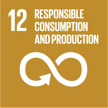About this project
The emerging trends in Agriculture has been youngsters steering away from agriculture as profession or source of livelihood because of uncertain incomes and climate change being one of the major reason leading to big variance in income. The selected geography, Jambusar block (administrative area with a population of roughly 100,000) has many industries around where local youth get employment as contract workers with Rs 250 to 350 per day. Compared to that agriculture is more hardwork and less pay, and hence less lucrative. With advent of COVID-19, lockdown, industries closing suddenly, many industries are not paying to contract laborers, with job rotations less laborers called for work in industry like situations came to fore which were not envisaged till now. During this time, agriculture and animal husbandry, the two traditional livelihood sources in rural India continued and everyone banked on it for economic revival. It also brought forward technological linkages for market access in agriculture produce.
With first hand experiences, youth have realized to certain extent, the importance of agriculture as key livelihood activity. It is at this moment it was deemed essential to engage, nurture and promote young farmers, set up role models of young farmers leading next green revolution of India with orientation of sustainable agriculture practices.
Sustainable agriculture practices encompasses practices healthy for environment and health both. Data suggests that India cover 18% of the world population. India also has 4% of world’s fresh water. Agriculture intakes 80 percent of the fresh water resource which shows unplanned utilization of such critical and deficit resource. Major method used by farmers is flood irrigation which counters judicious use of fertilizers. This not only is leading to depletion in ground water resources and even waste of surface water, it is also scrapping nutrition from soil as well. Excessive use of fertilizers and chemicals in soil are not only increasing expenses in agriculture but also depleting the quality of soil. There is an intense need at present to adapt sustainable practices in agriculture and still get sustainable income for farmers especially small and marginal with less than 5 acre of land holding.
The Project is being led by Kamlesh and Shreya – a team of two youngsters. The team will have combination of expertise in program implementation, agriculture knowledge, and local rapport, supported by program management and communication support that will help in reaching maximum farmers of intervention area.
Goals and Objectives
GOAL :
· To promote water conservation in agriculture through adapting sustainable agriculture practices with accountable young farmer leaders
OBJECTIVE:
· To create a cadre of young farmer adapting and promoting sustainable agriculture practices to small and marginal farmers
· Reduction in water usage in irrigation by 30 percent amongst model farmers by adapting water saving techniques in agriculture
Expected result
Key activities of the project focuses on cadre building of Sambal Sathis who are at the centre of project. The proposed project is six months phase - first phase of the project where SAMBAL Saathis are getting trained and farmers are getting oriented to issues. Next phase will be focussed on adaptation of water conservation techniques and activating water user association.
This is the project of the youth, by the youth for the youth. This collaboration will create space and voice for youth in constituency that Aatapi is reaching at present. It gives an opportunity to youth to understand global perspectives and link with processes happening at global level.
The total budget is Euro 3494 (Rs 2.97 Lac) which mainly will be utilized for small incentive to young farmers and their capacity building. Since this will seep in the overall program of Agriculture Development of Aatapi, it will derive resources from the same like technical support as well as senior team guidance.
Sustainable Development Goals
About me / organisation
Aatapi Seva Foundation
Aatapi Seva Foundation is a Social Developmental Institution, incorporated under the Companies Act,2013 (Section 8) working towards holistic and sustainable community development throughpromotion and strengthening of community based organizations.
Aatapi strives to facilitate and empower the local community partners by organizing, building capacities, and empowering to take ownership of development initiatives, collaborating with various stakeholders - CBOs, government, non-government organizations, and corporate.
Aatapi is engaged with small and marginal farmers promoting climate change resilient, salinity resistant agriculture practices since 2009. Efforts are towards strengthening traditional sources of income by linking them with technical, financial and market resources. 2500 farmers are at present benefitting through farmer’s groups. Aatapi has promoted a FPO – Vivekanand Khedut Mandali which has membership of 400 plus farmers as well ‘Sahiyaru Prayan’ – a bank of agriculture tools provided to farmers on rent at no profit no loss basis.

